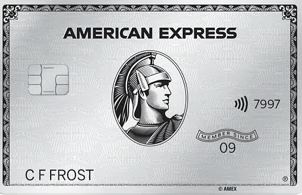
Personal Finance Beliefs I Ignore
I’m confounded at the extent of financial illiteracy seemingly everywhere. Many people haven’t been taught key personal finance basics, and others have receive terrible advice from others. Inevitably, personal finance involves much people fear discussing: specific amounts, one’s unhealthy relationships with money and debt, poor decision making, etc. I feel that many crave personal finance guidance, and often, they’re satisfied with anything they can get – even if it’s not right for their situation. Today, I’m sharing a few common personal finance beliefs which I ignore and why. While they may be valid for some of you, others may find they can resist certain ones, as well.
Note: This article is for entertainment purposes only. Consult a professional regarding your situation.
I Need to Follow a Budget
Of course, those just building their personal finance foundation should set up and follow a budget. Over time, though, a budget may be unnecessary based on one’s natural adherence to healthy financial decision making. We haven’t followed a budget in years. Instead, we pay attention to cash flow. Why? In our situation, our spending can substantially vary month to month, we focus on consistently sensible spending decisions, we avoid a sense of deprivation, and we resist complacency. We naturally keep our spending in check by the personal finance muscle memory we’ve built up over the years.

Used Cars Are Best
I drove a few used cars over my high school, college, and early adult years. They were a constant pain. Looking back, I spent way too much money and time taking care of those cars. I quickly discovered I didn’t want to be a used car guy for the rest of my life.
Used car sticker prices can be attractive, but they don’t take into account the earlier or more substantial maintenance costs they might require compared to new cars. Certain car makes and models aren’t that great a deal used, anyway. It’s a roll of the dice compared to the right new car, in my opinion. Perhaps I’m scarred by my own used car experiences, but I enjoy the relative peace of mind and simplicity a new car offers me. Since my mid 20’s, I’ve focused on new cars and driving them as long as possible.
I Need 70-80% of My Income in Retirement
I’ve heard and read about this doozy for years. The saying goes that one will need 70 to 80% of his or her income to live comfortably in retirement. Nonsense! These figures imply that individuals allow lifestyle creep to permanently set in throughout their working years. Perhaps that happens with some people, but it didn’t happen with me or others who are financially independent. Just because someone’s salary increases over a career doesn’t mean spending must at the same rate. With those increases, many decide to save and invest more for their future rather than frivolously spend. And even if one wants to use a percentage measurement, each individual should tailor it to his or her specific situation. Arbitrary percentages can’t be evenly applied to everyone.

I Can’t Do My Own Taxes
Ads for tax services incessantly bombarded us this time of year. Many hire such services to do something they don’t want to do themselves. I get it. I don’t want to work on my HVAC, so I hire a guy. But I believe most anyone can do their own taxes if they are motivated enough to learn. Of course, this may take more time for many, but it can pay off. I’ve enjoyed doing my own taxes and what I’ve learned along the way. Nerd alert, I know. Going solo here isn’t for everybody, but it’s not as painful as you may think.
Don’t Touch Retirement Funds Early
When I was much younger, I was told that touching retirement funds early is a terrible move which should be avoided. Accessing them early would incur substantial tax penalties. Over the years, I learned more nuances of how to access them while minimizing or avoiding tax burdens. I routinely dive in as a financially independent individual. Beyond financial independence, one may need to access retirement funds earlier than expected for emergency purposes. Many frown upon such a move, but doing so may beat other higher cost alternatives to meet a specific need.

I Spend More Due to Inflation
Inflation happens. But I refuse to accept that everything gets more expensive over time. This stuff is now cheaper for my family and me: certain electronics, wireless plans, streaming services (replacing cable), travel (thanks to our points hobby), and certain utilities. My family and I also obtained cheaper housing, groceries, recreation, and dining by relocating to a lower cost of living area.
I Need a Financial Planner
Unlike tax advice, financial planning commercials beat us over the head year-round. But similar to taxes, some may choose to hire a planner because they don’t want to do it themselves. Fair enough.
For what it’s worth, I reached financial independence at 38 years old without ever paying for financial advice. I don’t say this to spike the football. Rather, I want to underscore that one can financially prosper without professional help.
It does take time and effort to soundly invest, but not as much as you may think. With a bit of interest, this can be a fulfilling solo endeavor. Here’s another way to look at it. Will it take you longer to identify a financial planner you trust or to learn how to manage your own savings and investments?

I Should Avoid Credit Card Annual Fees
Points and travel hobbyists generally reject this thought, but I feel it’s worth bringing up. In my view, people focus too much on waving annual fees and cancelling the card if they do not. Sure, I go after retention offers like any other savvy hobbyist. But I’m also fine paying an annual fee on a card when I get a higher value out of the benefits that I naturally use. I feel the same about cards with annual fee increases. Logic takes precedence over emotions.
Conclusion
These are just a few of the common personal finance beliefs I resist. Everyone’s situation is extremely personal and different, so you may disagree with some or all of my views. From my perspective, it’s key that we thoughtfully learn, adopt, and own each of our financial principles and the subsequent decisions we make based on them. More passive individuals are targets for exploitation. Question personal finance norms and identify your own unique path. What personal finance beliefs do you question?



[…] I Call BS on These Common Personal Finance Beliefs. – I agree that many of these personal finance common beliefs are not suited for everyone. That’s why they call it personal finance; everyone needs to find what strategies work before for them. The most important step is figuring out a few things that work, then stick with them and adjust as you make progress towards your goals. […]
Having a priority pass is an inflation buster with 28 per person per restaurant credit . With a face value of 400 full priority pass is worth at between 200-300 real dollars and worth thousands to the !% who have a clue to rest keep waiting for list for amex lounges !
I agree & do everything you have discussed.
I worked alongside financial planners for over twenty years and never heard some of the advice you listed above. I’ll say that YMMV when it comes to used vs new cars. I’ve bought, sold, parted and driven over 30 cars/trucks in my life. ROI is higher and TCO is lower for the used cars. Some of that may no longer be possible since current cars are designed to be serviced/maintained by expensive parts & labor. Insurance is more expensive for new cars. Ultimately a “new” car is new for a very short time, this is why some folks buy after a year. Most depreciation has happened and bugs have typically appeared. Also why some people lease.
Zero-Based budgeting should be taught as a personal and business practice, and here’s why: Budgets make a lot of sense if you are the one deciding how to allocate someone else’s money. If personal, it helps you make stupid decisions, instead of looking at every situation uniquely.
Instead, gauge your future needs in the short and long term, and decide if it makes sense to buy it now, based on both your assets today, and your assets and likely income in the future. Often, the decision can be simply delayed, since you may not need it immediately, and by the time you make a future decision, you may never need it. Inflation and probability also should be factored in. Example: Amazon PRIME is going up ~20%, there’s a 20% chance you might want to cancel Prime anyway. — Don’t buy. Only 2% chance you won’t need it? If you have enough cash and no better investment that pays 18%, BUY now. Same for commodities. Gas lines area mile long at COSTCO today–Why? Ukraine invasion might add 25% to gas in the next few weeks — ROI? likely +100% this year!
— >> Now, what did you budget for gas this month…?? Does it matter?? NO!!!
— BUDGET Not enough for necessities or unforeseen requirements: If you need something that isn’t in the budget, but it is critical, you will likely talk someone into providing the extra funds. If you need it badly and can’t buy it, generally the organization will go without, not you personally. On a personal budget, if you need electric, gas, or food, you will get the funds required, with or without a budget.
— BUDGET More than enough, excess at the end of the budgeting period: Great!! If it is someone else’s money, spend it, preferably on something that benefits you. The company will never miss it, and expects it to be spent, and it really doesn’t matter [to you] if it benefits the company or not. It if it is personal, spend it on a party or vacation, even if you just got back. Splurge today, don’t save it.
Alan,
Thanks for sharing your perspectives!
Thank you for buying new cars. Someone has to replenish the selection for the rest of us. Maybe you could take orders from us on what feature we want on your next one. I had to search very hard to find my Audi A6 with heated steering wheel and heads-up display this last time. Oh and stop buying convertibles with black interior, please.
Sure, no problem, but realize, 15-20 years is a long wait for ours to hit the used car market.
DaninMCI and DjG,
That’s the definition of a long play!
Are you claiming your new cars depreciation is less than maintenance costs of a used car? I highly doubt that. In any case, without numbers this is just speculation. Your lifestyle choice, nothing more.
It’s pretty easy to do your own taxes if your financial situation is straightforward. If it’s even a little complicated then you should really hire a CPA. Otherwise you’re wasting your time learning some side thing that won’t get you closer to your goals.
If you regularly dive into your retirement account why not tell us the pros and cons? What fees do you pay and why is it worth it? This could be just your inability to maintain an emergency fund.
I would also claim that for a high income earner the “free travel” or any other frugality hobby likely won’t pay off. Investing one’s limited time in growing one’s career will have a better payoff than learning the ins and outs of how loyalty programs and bank application criteria work. I am mostly talking about IT professionals, whose wages can wary a whole lot ($100K-$1M). But it’s probably also true for business owners and people in other highly compensated professions.
A new car has zero depreciation if you don’t sell it. And it’s debatable if “depreciation” is the correct term for selling a car that you’ve used for 15-20 years – and in our case, garage kept with almost always nothing other than routine maintenance of fluids, filters rubber, and brakes needed, selling at far above claimed value.
Today’s tax software is so well developed and comprehensive, the threshold to need a CPA is a very high bar of complexity.
You are on-point about advancing career, if – and a big if – you’re employed in the right circumstances or own your own business. For many, those elements are not aligned so there is little benefit to deep dive into working for the man, while the hobby plus other ways to save (or make money depending on how you look at it, saving is really making) pay off well.
100% agree with the new car plan. Starting in the 80s we have been buying a new car @ every 5 years.
We gave each our children one of our 5-year-old cars after their second year of college. They drove these until they were able to buy new cars of their own then sold our gifted cars and pocketed the money.
We have donated other cars to veterans’ and other charitable organizations.
Out of curiosity, why did you take a withdrawal instead of a loan from the 401k (unless the plan did not offer that provision)?
Doesn’t the 401k withdrawal result in ordinary income plus the 10% penalty?
I find the contradiction between your refusing financial planners and saying “Consult a professional regarding your situation.” to be interesting. The fact is, most of your items are great for people that are capable, disciplined, and educated. For the other 99% of the population, at least some of these are needed.
Regarding cars for my family of 6, I buy them 4-5 years old, searching the whole country for a CPO warranty vehicle with minimal miles, a clean Carfax, and a consistent dealer service history. Then I keep them 10+ years until I get a service estimate that exceeds the vehicle value. It is a compromise position between buying used (maintenance costs and buying someone else’s problems) and new (immense initial depreciation).
EricF,
It sounds like you do your homework. Kudos!
No doubt a working / smart strategy. For us, having purchased nearly all new vehicles, with every one of them going 165,000 – 298,000 and still running strong when sold for decent prices, not one of them has ever “initially” depreciated. That new car smell remains priceless. I have targeted used vehicles that were on – and still are on – a path of appreciation.
I’ve bought certified with both high mileage knowing that I’ll put few miles on the car annually and low mileage certified on cars that we expect to put more miles on. On an SUV that was less than 2 years old with 43,000 miles I got a substantial discount and with the few miles I drove after 4 years it was considered low mileage and worth more than average for the year. With dealer certified vehicles you save a little and get a reliable car.
I spoke to a man today that bought a bargain priced car from an on line seller and found out a day later that the motor had to be replaced. The seller was no where to be found. Buying from a seller who who is the actual registered owner is far less risky than the unregulated sellers who have proliferated on Craigslist and Facebook
Wow, the first financial advice angled article that I’ve ever – and I mean ever – read and agreed with 100%! It reflects 100% of my own practices, experience, and hits several of the major common financial advice “guidance” points we hear often. Congratulations, and thank you for the reinforcement. And from FF content, that makes it even more unusual. I struggle to think of another common guidance point to refute, but here’s one: Send your kids to community college and state schools. Sure, nothing against that, they can be very successful on that path. But your children are your investment, fund their largest dreams and highest educational goals, and support them on a path to be the most that they are capable of – if you can. What I mean is, income earning paths. Giving them the best path into life that you can afford will not be wasted, and will pay off many times over.
DjG,
Thanks for chiming in. You bring up a great point regarding community colleges and state schools!
Good post, some of them I’ve had in mind but some I hadn’t thought of necessarily.
Benjy, I fully agree with all your points and would add another piece of financial wisdom to discard – always use cash or debit card for purchases, and don’t touch the credit cards except in the utmost emergencies. We’re financially independent and only use credit cards to collect points and miles, and I’m always amused of the pitiful look the cashiers give when they see me use the credit card to pay for groceries!
Dracula,
Thanks for chiming in. Perhaps that was such an obvious one, I left it out!
I agree with all these tips except for one: Doing your own taxes. I’m a CPA, but I will never do my own taxes anymore. I send them to another tax preparer who does them for me because between Jan and April I cannot bear the sight of seeing another tax return.
Joseph,
I totally get that one! Well wishes for you this tax season.
“But I refuse to accept that everything gets more expensive over time.” I’ll give you “everything” is different than “an average of everything.” Refusing to accept 7.5% inflation doesn’t make the reality of it go away.
Ian,
Are you living your own life or the average life of every US consumer?
I’m with Benjy, and double down – very little gets more expensive over time. Housing is the only apples to apples example I can come up with. Vehicles? Today’s vehicles are more expensive on the sticker, but are you getting the same car/SUV you purchased dollar for dollar 10-15 years ago? No way; today’s vehicles are not only technology loaded highly advanced machines, they last longer than ever. Food? We are still getting $2.99/lb ground beef, $0.99/lb chicken, %5.99/lb salmon, $1.99 cereal, $1.79 milk, on and on, that we were getting 20 even 30 years back – if anything we were overpaying in the past! Clothes, not only better but essentially the same price. Medical? While insurance is certainly higher, procedures are lower cost than ever, a $50k procedure 11 years ago was redone recently for under $25k, same provider, same insurance. Utilities and fuel? Easily no more than 10 years ago, and less now with solar subsidies that take a chunk off of our electric bills. All of that and no relocation, living in the high-cost DC-MD-VA I-95 corridor.
Don’t marry. Marriage is the single most detrimental thing to a guys financial health. Women marry up. All the time. They trade sex for a money. In a few years you will be divorced and she will have all the money. And if she alleges physical domestic violence, even if false, you are done. You will keep fighting in courts, and trying to save your job while she lives in another house with her new boyfriend waiting for her payday.
Marriage is good only for the woman. If you want kids, she will give them to you but then become fat and ugly. The only upside of a marriage are the kids. If kids are what you want, get a surrogate to have them for you. You will end up saving a lot of money in the long run.
I agree 100%…..you young men – take note and do not marry……I’m in my 40’s and speaking from experience and wisdom….
Financial illiteracy everywhere indeed
Pam,
Without any specificity or context, I’m unsure how to digest your comment.
I agree on (wisely) using retirement funds early on. I’ve put the max in my government 401k account since I was 22. I’ve done this to reduce my AGI and therefore student loan payments. Spouse does the same thing. We are saving about $60k per year in retirement (between 401k and defined benefit payments).
We have done two early distributions to buy two houses (down payments). We made a substantial profit on the first house (primary home) and have a huge amount of equity in the second house (vacation). We have gotten way more than return than it if sat in the 401k and got to enjoy owning our first house and then a vacation house.
We will try not to touch the retirement accounts otherwise. But when you are 30 and have $170k in your 401k, taking out $40k to buy a house won’t kill you.
A,
Bravo to you for doing the extra work and figuring out how to maximize!